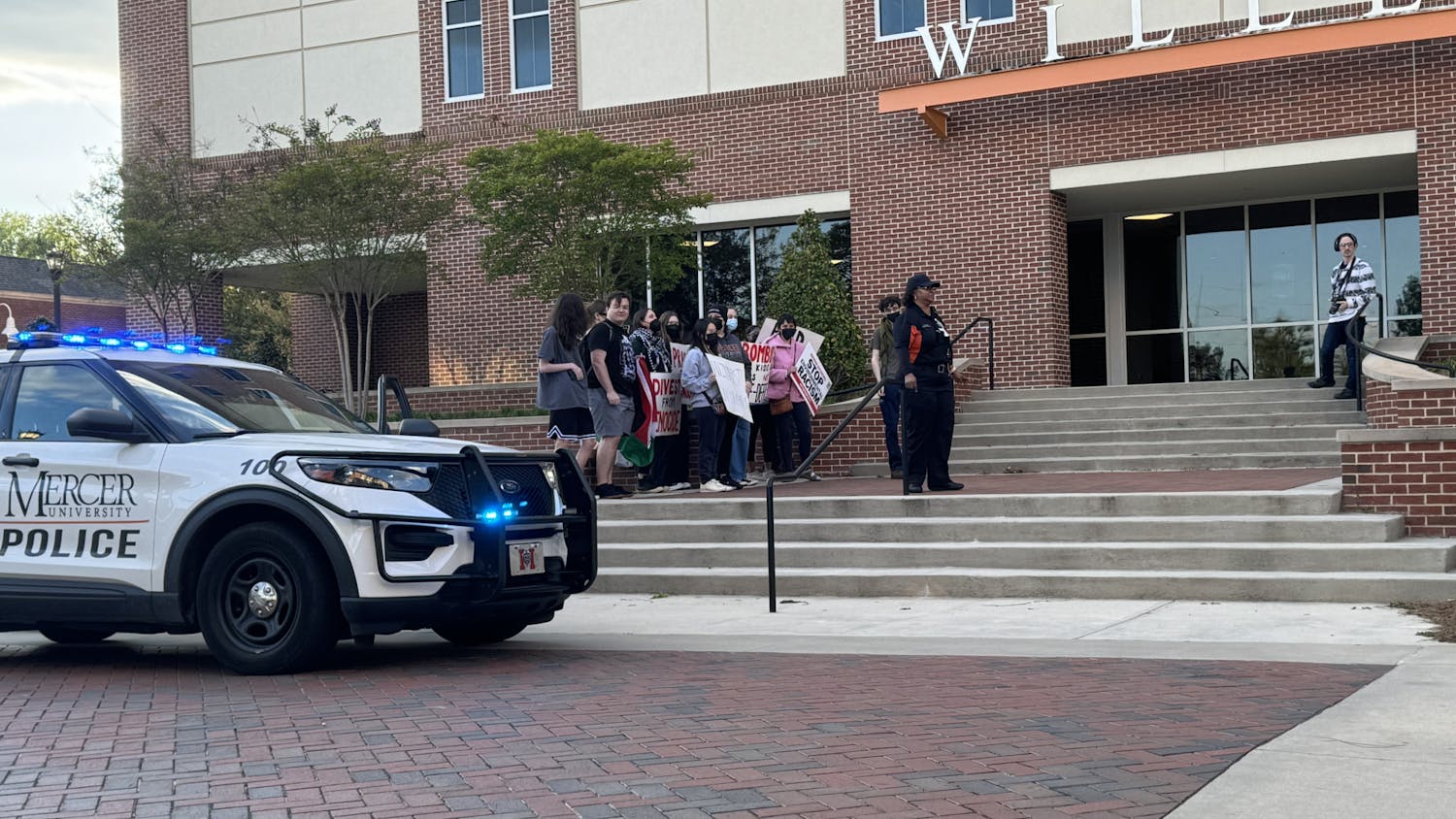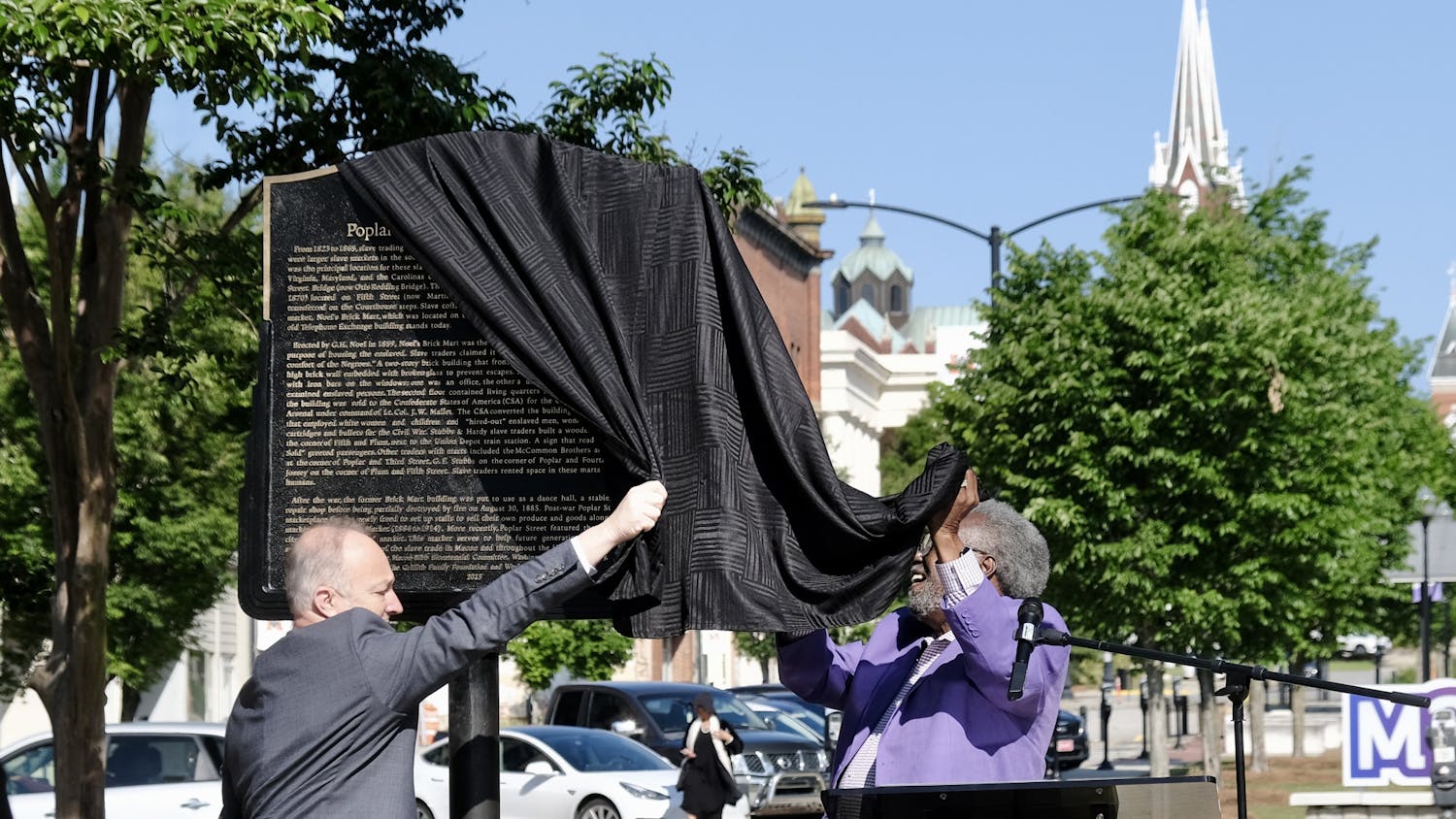Mercer released its first ever social media guidelines last week, setting official parameters for the appropriate use of online platforms such as Facebook, Twitter and blogs for university purposes.
Larry Brumley, Mercer’s senior vice president for marketing communications, said the new guidelines were “best practice strategies” meant to ensure the university is not falsely represented online.
“With social media and online technology, the boundaries sometimes get blurred. The question arises as to what is regarded as official communication and what isn’t. That’s what these guidelines are aimed at resolving––the difference between corporate and individual use,” Brumley said.
Brumley said the guidelines, which have been in the works since November, are modeled after similar social media policies at other schools, where faculty members have sometimes used university networks to post outrageous claims.
The new guidelines apply to any students, staff or faculty members using social media platforms considered to be “officially affiliated with the university.”
Such officially affiliated platforms include, but are not limited to, third-party social networking accounts and pages managed by student organizations or academic departments, as well as all content hosted on Mercer’s Web servers.
The guidelines do not intend to address individual use of social media sites maintained by students or faculty, Brumley said.
“We can’t legislate personal use, and we have to be very careful that we uphold academic freedom. If students or faculty members want to put something on their Facebook or Twitter, they should have that right. But they should also make sure that it’s clear to others that they are speaking as individuals, not for the university,” Brumley said.
One of the suggestions included in the new guidelines is that faculty members indicate clearly on their personal sites that they are expressing their individual views.
Daniel Manson, an employee of Mercer’s marketing department who helped draft the guidelines, said that the university cannot ultimately mandate what individual users choose to post on third-party sites, but it can make suggestions.
“Certainly, we can set out guidelines, but they are just that -– guidelines, not policies,” Manson said.
Manson added that the guidelines were not drafted in response to any specific problems or concerns, but rather to prevent any future misunderstandings about social media that may arise.
Professor David Cozart of Mercer’s computer science department said he thought the new guidelines were for the most part fair, since they addressed previously unanswered questions about social networking, especially relating to faculty use.
“They seem to be well thought out and very reasonable. The guidelines remind us that we have two identities online: ourselves and as Mercer representatives,” Cozart said.
SGA president Trenton White said he thought the new guidelines provided common sense ways for student organizations to connect using Facebook and Twitter without violating the University’s community of respect.
“I recommend that all student organization leaders read the guidelines if they utilize social media outlets, as should any member who is responsible for updating the group’s social media,” White said.
John Chalfa, a professor of journalism and media studies, said he views the new guidelines as having a net positive effect for everyone.
"It appears to be a good thing for both parties and should be taken as a guardian of privacy rather than a threat to privacy," Chalfa said.
University releases new social media guidelines





